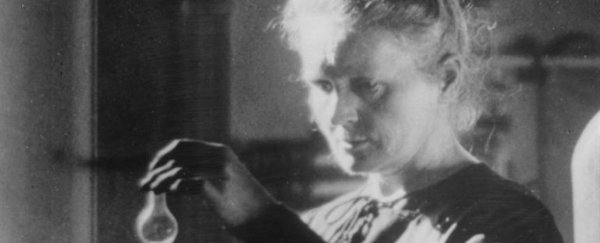In a recent experiment, students who learned about the struggles and failed experiments of some of the greatest scientists who ever lived got significantly better grades than those who learned only of their accomplishments.
Showing students that the likes of Einstein and Marie Curie had their own personal and intellectual shortcomings - and that yep, science is actually really hard - was enough to elevate them academically, researchers from Columbia University have found.
"In our culture we always say you don't want to intimidate kids, you don't want to tell them how hard the work is. We think kids are so fragile," lead researcher Xiaodong Lin-Siegler told Jenny Anderson at Quartz, adding that this is the exact opposite approach we should be taking. "Tell them the truth. They are resilient."
Lin-Siegler and her team recruited 402 students from the 9th and 10th grade at four New York City high schools in low-income areas of the Bronx and Harlem and divided them into three groups.
The control group read a typical, 800-word science textbook description about the great accomplishments of Albert Einstein, Marie Curie, and Michael Faraday, an English scientist who made important contributions in the fields of electromagnetism and electrochemistry.
Instead of learning about their achievements, another group read about the scientists' personal struggles, such as having to deal with being barred from university for being a women, and fleeing from Nazi Germany for being a jew.
The third group read about the scientists' intellectual struggles, such as Curie's many failed experiments, and Einstein's multiple school changes and problems convincing his peers that gravity could actually bend light, and how they overcame them.
Rather than interpreting the struggles of some of humanity's greatest minds as proof that a regular person has no chance, at the end of the six-week experiment, the students who learned of the scientists' struggles ended up outperforming the group that learned only of their achievements.
The lowest performing students in the 'struggle story' groups ended up making the greatest gains in their grades.
Amazingly, the control group actually ended up doing worse than before they participated in the experiment. "[T]he students who learned only about the scientists' achievements performed worse. They believed the scientists were innately gifted - unlike themselves," Anderson reports for Quartz.
"When kids think Einstein is a genius who is different from everyone else, then they believe they will never measure up," Lin-Siegler explains in a press release. "Many students don't realise that all successes require a long journey with many failures along the way."
The results have been published in the Journal of Educational Psychology.
Even if you're no longer a student, or don't have a science class to teach, the study provides some really interesting insights into how we can motivate ourselves to learn new things, whether that's a new language, how to code, or play a musical instrument.
As Quartz points out, intellect is malleable, and we build on it through experience, rather than having to settle with what we get when we're born. None of that isn't easy, but learning the techniques used by bonafied geniuses to get past that is a pretty good bet.
